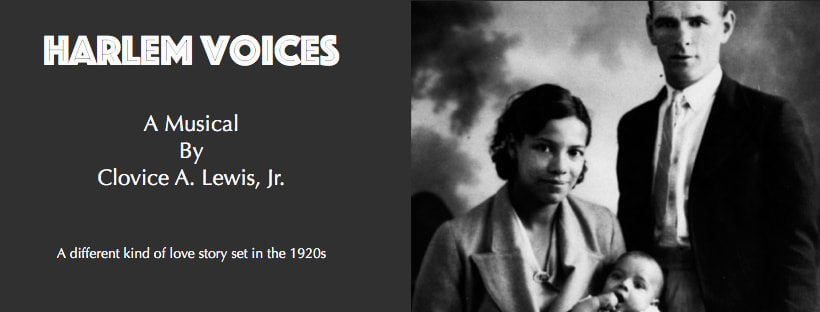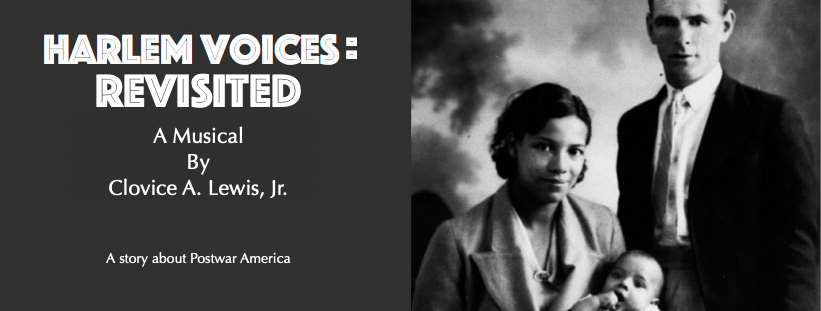Justice through Creativity...
A Life Devoted to Music
|
Rev. Clovice Lewis is an exceptional musician who's artistry as a composer and a cellist spans many genres. A website devoted to his music can be found at www.jazzicalmusic.com. At that website you can purchase scores and parts, high quality recordings, and listen to mp3 files of his music.
Clovice's music comes from his experiences as an African American artist living in the United States from before the great Civil Rights era through the present resurgence of white supremacy. His music reflects our social ebbs and flows, from pressing issues, such as suicide prevention to human rights. His music is called "Jazzical" because it ranges from classical to avant-garde to jazz. He is a master composer able to write for large orchestra, wind band, chamber orchestra, film, games, jazz ensembles, chorus, solo instruments, and voice. Clovice's music has been performed by many orchestras in the United States and he has received several Artist-in-Residence placements. Among them are the Kimmel Harding Nelson Center for the Arts in Nebraska and the Rice Place Retreat in Oregon. |
|
About Clovice's Two Musicals - Harlem Voices© and Harlem Voices: Revisited
Harlem Voices© is a musical by Clovice A. Lewis, Jr., that is set in the 1920s. It is the first of three musicals dealing with Harlem, NY from 1923 through the present day. Harlem Voices: Revisited is the second musical. It picks the up the Harlem Voices© story eight years later on August 1, 1943 and continues until the Fall of 1976.
|
This is a performance of Movement #4 of "The Score" entitled "Love's Embrace" I composed. The performance was done at 3:00 PM on March 6, 2016 at the John Burroughs High School in University City, Missouri by the University City Symphony Orchestra, under the direction of Leon Burke. This movie is a composite of several sources: video and audio by Carol Cole-Lewis, audio by David MacRunnel, and video by Micheal Willis of Firstborn Productions. If you are interested in having this entire piece performed in your community as part of the "Global Embrace" tour, please contact me at [email protected]. Also, please visit the Jazzical Music website at www.jazzicalmusic.com.
|
|
|
This is a performance of the Allemande - Suite #1 of the Bach Suites for Unaccompanied Cello I did at the Soper-Reese Theater in Lakeport, CA on April 13, 2018. The video is poor... long story having to do with technology being used on Friday the 13th... but the audio came right off the house mixing board.
|
|
|
My friend, Rose Ayala, created a series of three paintings that were shown a few years ago in a gallery in Mendocino, CA. I instantly fell in love with them and told her that I would like to compose music for them, a la Mussorgski/Ravel "Pictures at an Exhibition". Since then, she has left them in my care to use as inspiration. Many thanks to Rose! This piece for Chamber Orchestra was just completed on October 1, 2018. It depicts the painting entitled "Room With a Door". I intend to finish the other two pieces before December, 2018.
|
|
|
My wife, Carol Cole-Lewis, played piano for an improvisation we did on the April 13, 2018 "Me and My Cello" concert in Lakeport, CA. Time was short. The concert threatened to go over by about 20 minutes, so we did a really short, but sweet improvisation. It was similar to the kinds of improvisations we've done for many years as Preludes and Offertories every Sunday at the Unitarian Universalist church we attend.
|
|
|
This piece has its genesis in the time several years ago when I had the pleasure of playing cello in an orchestra where Rufus Olivier appeared as a soloist. I was impressed with his virtuosity... his musicianship, tone, and most of all, his jazz-like style. Over the years Rufus and I have had the chance to talk and I have threatened to compose a piece for him each time we met. The first movement of this piece, "Looking a Long Time", is representative of the many changes I experienced which affected nearly every part of my life after my first divorce. The second poem, "...For Carol", was composed for, and about my new wife, Carol.
|
|
|
Vocals - Melissa Bevins Guitar - Steven Keith These two (now former) students at the Mendocino Community College in Ukiah, CA recorded "Now That You're Gone" as a final project. This makes me very happy!
|
|
|
I love C-rated sci-fi films from the 1950s. I also love fooling around with my rather extensive collection of synthesizers I have collected since the early 1980s. This music popped out on February 18, 2024. Of course, I had to create a movie to go along with this music!
|
|
Part of the Moog Synthesizer patch I used to create "Alien Landscape"
Music, The Effects of Race, and Social Justice
|
In 2019 I composed a musical called Harlem Voices© that compares the lives of black people during the 1920’s Harlem Renaissance period with social issues of today. Many of the challenges we confront now are reflections of those from a hundred years ago: police brutality, poverty, systemic racism, and white supremacy. My experience composing Harlem Voices© led me to produce a movie called “Telling the Story: African Liberation Music”. In the movie (presented here) I described a revelation that much of the music I have composed over many years reflects his personal struggles with racism, or they have a strong element of social justice.
This is how I concluded the movie: “I now understand how important it is for me to share my life stories through music. I am curious to know if other African American composers experience that need. Are we cut from a common holographic cloth? Do we vibrate to the same genetic frequency that compels us to be the non-verbal prophets and witnesses to genocide? Are they, like me, born with an ability to understand music at its deepest structural levels? Are they, like me, also unable to separate their experiences of racism, discrimination, and inequality from their expressions of music? How do they experience the creative process? How do they thrive in this most rarefied pantheon of white culture? Do they wish to explain the nature of reality in some manner? How important is it for them to share their joy of music and life with others? How have they made ‘white music’ their own... decolonized it for the rest of us? Is that decolonization important to them?” |
|
Since I've produced the "Liberation" movie he has reached out to many other black musicians to invite them into a dialogue about how race effects their art. In fact, the Middletown Art Center in Middletown, California and I did host a series of events, called "Sounds of Liberation" with a grant from California Humanities in 2021.
|
“Can You Touch the Sky?” is a piece that was inspired by the many ways human rights are violated. The doctrine of human rights has been highly influential within international law, global and regional institutions. Actions by states and non-governmental organizations form a basis of public policy worldwide. We Americans are rightly proud of our pronouncements about the inalienable human rights that are guaranteed by the laws that formed the basis of our governmental DNA. That is why I was particularly upset at the government of United States when it became clear that it had engaged in water boarding and other forms of torture during the Bush administration.
"Can You Touch the Sky" is an allusion to our imperative to have compassion for other human beings. This song has become a chilling testament to the extrajudicial killings and detentions of people of color at the hands of law enforcement in our nation. I imagine Sandra Bland, Eric Garner, Ahmaud Arbrey, Breonna Taylor, George Floyd, Daunte Wright, and countless others facing immanent death, pleading for answers to questions posed in this song. The piece addresses the issues and challenges of suffering on many levels, and the focus is on both the individual and society at large. This is primarily done with the phrase, “Can You Touch the Sky?”, which serves as an allegory for the moral high ground to a society, and an allegory of hope for the individual. Underneath all is a plea to realize that we are all inextricably connected to one another, and that injustice to one is an injustice to us all. "Can You Touch the Sky" is dedicated to all human beings who suffer cruelty at the indifferent hands of other human beings. |
Mendocino College Monday Night Singers • Janice Hawthorne Timm, Director
December 6, 2021 |
|
|
This movie is a collaboration between Roy Zimmerman and Clovice Lewis. It is an example of how music can bridge chasms of human experience.
|
|
|
On a much different "note", this is a piece I composed and performed in 1992 (cello and synthesizer), when no one seemed interested in listening to the "Electronic" music he was producing. Since this kind of music is finding an audience after so long he thought it might be interesting to match it with images from the Hubble telescope for a new generation of music lovers.
|




